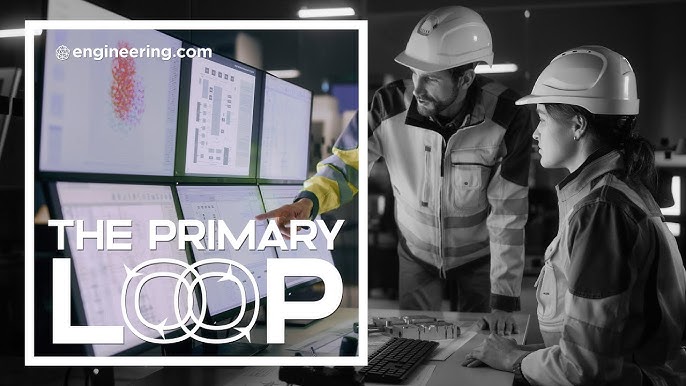The rise of Artificial Intelligence (AI) is changing many fields. One area that faces big changes is engineering. Engineers design, build, and maintain structures and systems. The question many ask is: Will AI affect engineering jobs?
Understanding AI and Engineering
First, let’s understand what AI is. AI is a technology that allows machines to learn and make decisions. It can perform tasks that usually require human intelligence. For example, AI can analyze data, recognize patterns, and even solve problems.
Engineers use technology to solve real-world problems. They work in many fields like civil, mechanical, electrical, and software engineering. These jobs require creativity, critical thinking, and technical skills.

Credit: m.youtube.com
How AI is Changing Engineering
AI is already changing engineering jobs. Here are some ways it does this:
- Automation of Tasks: AI can automate routine tasks. This means engineers can focus on more complex problems.
- Data Analysis: Engineers deal with large amounts of data. AI can quickly analyze this data, providing insights that help in decision-making.
- Design Assistance: AI tools can help in designing products. They can suggest improvements and optimize designs.
- Predictive Maintenance: In fields like civil engineering, AI can predict when machines will fail. This helps in planning maintenance and reducing downtime.
- Enhanced Safety: AI can monitor work environments. It can identify hazards and improve safety measures.

Credit: www.forbes.com
The Benefits of AI in Engineering
AI brings several benefits to the engineering field. Here are some of them:
- Increased Efficiency: AI can complete tasks faster than humans. This speeds up project timelines.
- Cost Savings: Automating tasks reduces labor costs. Companies can save money while maintaining quality.
- Improved Quality: AI algorithms can reduce human error. This leads to higher quality work and fewer mistakes.
- Better Innovation: With AI handling routine tasks, engineers can innovate. They can create new designs and solutions.
- Remote Work: AI tools allow engineers to work from anywhere. This flexibility is important in today’s job market.
Challenges Faced by Engineers
While AI offers many benefits, it also presents challenges. Engineers need to adapt to new technologies. Here are some challenges they may face:
- Job Displacement: Some jobs may be replaced by AI. This can lead to job loss in certain sectors.
- Skill Gaps: Engineers need new skills to work with AI. There may be a learning curve for many professionals.
- Over-reliance on Technology: Engineers may depend too much on AI. This can reduce critical thinking and problem-solving skills.
- Ethical Concerns: Using AI raises ethical questions. Engineers must consider the implications of their designs.
- Data Security: AI relies on data. Protecting this data is crucial to avoid breaches.
The Future of Engineering Jobs
The future of engineering jobs will likely be different. Here are some predictions:
- New Roles: As AI grows, new job roles will emerge. Engineers may become AI specialists or data analysts.
- Collaboration: Engineers will work alongside AI. They will use AI tools to enhance their work.
- Continuous Learning: Engineers will need to keep learning. They must stay updated on new AI technologies.
- Interdisciplinary Work: Engineers will collaborate with other fields. This includes computer science and data science.
- Focus on Creativity: Engineers will need to focus on creative problem-solving. AI will handle routine tasks, freeing up time for innovation.
What Can Engineers Do Now?
Engineers can take steps now to prepare for the future:
- Upskill: Learn about AI and data analysis. Take online courses or attend workshops.
- Network: Connect with other professionals in the field. Join engineering associations and attend conferences.
- Stay Informed: Read articles and research about AI trends. This will help you understand the changes happening in engineering.
- Be Adaptable: Embrace change. Be open to new technologies and methods.
- Focus on Soft Skills: Improve communication, teamwork, and critical thinking skills. These are important in any job.
Frequently Asked Questions
Will Ai Replace Engineering Jobs?
AI is expected to enhance engineering roles, not replace them, by automating repetitive tasks and boosting productivity.
How Will Ai Change Engineering Careers?
AI will introduce new tools and methodologies, reshaping skill requirements and creating opportunities for innovative problem-solving.
What Skills Will Engineers Need With Ai?
Engineers will need skills in data analysis, AI programming, and adaptability to effectively collaborate with emerging technologies.
Is Ai Good For Engineering Jobs?
AI can improve job efficiency and creativity, making engineering roles more dynamic and rewarding for professionals in the field.
Conclusion
AI is indeed affecting engineering jobs. It brings both opportunities and challenges. Engineers must adapt to stay relevant in their fields. By embracing AI, they can enhance their skills and careers. The future holds many possibilities. Engineers who prepare today will thrive in the changing landscape.
In summary, AI will transform how engineers work. It will create new roles, enhance efficiency, and improve quality. By understanding the impact of AI, engineers can navigate their careers effectively. The journey may seem challenging, but the rewards will be great. Let’s embrace this exciting future together!
